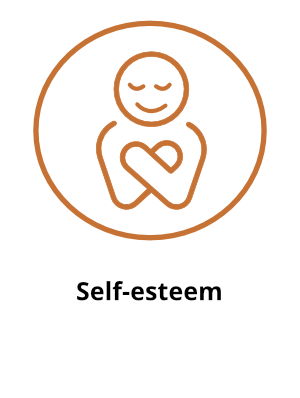Psychosocial Cluster
Home > TAND Clusters > Psychosocial > What to do > Family relationships
Family relationships
Individuals and their families who are affected with TSC must live with this medical condition for the rest of their lives. They face challenges and problems in areas such as education, employment, health insurance and costs, and social participation. As a result of these issues, the individual with TSC and other family members may experience high levels of stress, and relationships within the family can show signs of tension.
Comprehensive family care focusing both on family dynamics and on each individual relationship may help them to overcome particular challenges. Monitoring possible signs of tension and providing comprehensive family care focusing on family dynamics, on each individual relationship, and in the couple, may help them to overcome challenges. Make sure you make time for you and your partner.
There are different resources that could help you to identify and manage difficulties, barriers and stressors, and to improve family dynamics. Below we have provided some resources for caregivers supporting siblings of individuals with TSC, and for caregivers dealing with relationship difficulties.
Caregivers supporting siblings
Top five tips for supporting siblings of children and adults with a disability:
- Express feelings: encourage your children to talk about their positive and negative feelings and confirm what you have heard.
- Make time: give attention to and make time for your other children, so they know that they are also important to you.
- Include siblings: talk to your other children about TSC and be open about what is happening or may happen in terms of disease development.
- Participate together: try to do things together as a family; sharing positive and pleasant experiences may help to cope with the situation.
- Maintain rules: maintaining rules and structure helps children to feel safe and provides predictability and security.
Parents
[siblingsaustralia.org.au]
11 Incredible Strategies to Improve Sibling Relationships
[thecenteredparent.com]
Caregivers supporting partner relationships
There are strategies that couples can use to deal with conflicts constructively and to improve their patterns of interaction and communication.
Research and experience-based principles to maintain or improve your relationship while caring for a child or family member with a disability or disease:
- Engage in joined problem solving and act as a team.
- First ask, then listen – don’t instantly seek to fix the problem or share your opinion.
- Take care of yourself in order to take care of others.
- Lean on external support when you need more resources.
- Share the responsibilities and tasks and appreciate your partner’s help.
- Disclose your needs and concerns – consciously schedule time to talk with each other.
- Invest in one-on-one activities and experiences and create quality time.
- Call on a professional in time when facing stressful and challenging times.









